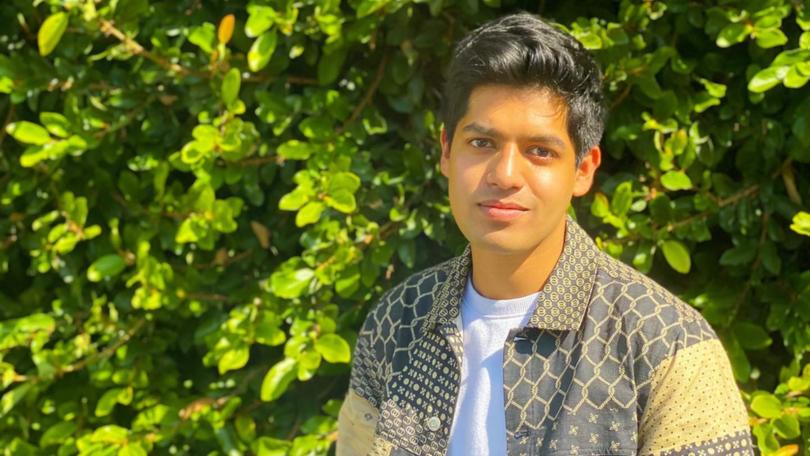Gen Z bosses call out the ‘misconceptions’ Boomer and Gen X hold that get in the way of their career success
Gen Z workers know what their bosses are saying about them, and they’d like to have a word.

Gen Z workers know what their bosses are saying about them, and they’d like to have a word.
Ever since Gen Z began entering the workforce, plenty of leaders have lamented that today’s 20-somethings are difficult to manage, lack work ethic and have poor communication skills. Some leaders even go as far as saying they avoid hiring Gen Z workers, who are as old as 27 this year.
In many ways, it’s nothing new.
Sign up to The Nightly's newsletters.
Get the first look at the digital newspaper, curated daily stories and breaking headlines delivered to your inbox.
By continuing you agree to our Terms and Privacy Policy.“Every generation has something to say about the next generation below them,” says 25-year-old Keely Antonio; she’s the co-founder of FeelSwell Experiences, which organises in-person events to support employee connection.
Even so, she says myths that people in her generation are lazy, unreliable and entitled do real damage to how they show up and succeed in a workplace. And it could spell trouble for the longevity of a company as Baby Boomers retire and Gen Z becomes a greater share of the workforce, too.

“Stereotypes cause barriers,” Antonio says, and “we see these stereotypes getting in the way of intergenerational harmony and bringing people together.”
Here are some of the biggest myths about Gen Z in the workplace that she and other career experts say are worth busting.
Myth: Gen Z doesn’t want to work
While the desire for work-life balance doesn’t have generational boundaries, young workers are especially vocal about seeking it out.
Some reduce that mentality into thinking Gen Z doesn’t want to work at all. In reality, young professionals simply want to work differently, says Ziad Ahmed.
The 25-year-old is the co-founder of JUV Consulting, a Gen Z company that worked with Fortune 500 companies and was acquired by United Talent Agency in 2024.
Gen Z “wants to work on different terms,” Ahmed says. That may mean working from home a few days a week or on a nontraditional schedule.

Young people recognise that working is necessary to reach their goals, even if it takes more work for less reward.
Most recent college grads say they simply want stability from their job, and 53 per cent of Gen Z workers say they have a side hustle to make ends meet, more than any other generation.
Ahmed says bosses should be careful not to conflate Gen Z questioning office policies and procedures with them being unwilling to work altogether.
Young workers, and newcomers to an organisation, come in with a fresh perspective on how to innovate old practices, which is different from not wanting to contribute at all, he says.
Myth: Gen Z wants a raise just for showing up
Antonio sometimes hears from leaders that Gen Z’s salary expectations are too high for what they bring to the workplace.
The friction comes down to a misalignment in expectations between bosses and young workers, and how each party communicates them, Antonio says.
“Something we’ve heard from leaders is Gen Z just wants a pay raise if they show up,” she says.
“On the other hand, we hear Gen Z saying, ‘I just want to live my life, and I’m not getting paid enough to do this.’”

Often, that boils down to the young professional not feeling fulfilled in the work they do, or feeling pressure to work more hours than expected, and so they seek out value through higher pay, Antonio says.
What’s more, stagnating wage growth and rising costs of living mean young people earn more but aren’t able to afford milestones like paying off debt or saving for a home.
The highest-paid graduates from the Class of 2024 expect to earn an average salary of US$77,000 per year (about AU$75,000 for graduates in Australia) and recent grads consider US$82,000 per year a “high” salary (or more than AU$95,000 for high-earning Aussie grads)
As for finding a compromise in the workplace, Antonio says both sides play a role.
She advises leaders to “go to the Gen Zer and say, ‘What’s going on? How can we help you create a better experience at this company and fulfill what you hope to achieve here?’
“Then the Gen Z employee can express, ‘I enjoy working for your company; how can we hit some of my goals together?’”
Myth: Gen Z is asking for too much
Many leaders think Gen Z are entitled not just in their earning power, but what they expect out of work in general.
If there’s one myth Ahmed would like to see wiped from the discourse, it’s that Gen Z workers’ expectations in where, when and how work gets done are asking too much of what a professional environment can provide.
Every young generation has come into the world and workforce and asked hard questions to reimagine what the world can look like.
Research suggests Gen Z is especially enthusiastic about flexible working styles and the chance to make a difference. They expect benefits that support their entire being, like time off and mental health resources.
They’re also vocal about wanting transparency at work, whether it’s a company’s stance on socio-political issues, how it creates an inclusive work culture, or around salary and compensation.
“It’s fair to say that what Gen Z is asking for is challenging, but it’s a disservice to all of us to believe what Gen Z is asking for is the incorrect thing to ask for,” Ahmed says.
“Every young generation has come into the world and workforce and asked hard questions to reimagine what the world can look like,” Ahmed says.

Today, that means reimagining how work gets done, how people value their careers, and what they’re not willing to give up for it.
Ultimately, corporate resistance to change is “a cop-out,” Ahmed says.
“It’s a bad business practice to say that if something is hard, it’s not worthwhile.”
Myth: Gen Z workers will quit because they’re disloyal
It’s long been true that early-career professionals are more likely than seasoned workers to change jobs quickly. A lot of that comes down to life stage and responsibilities.
Antonio notes there are some factors specific to Gen Z that could make it easier to quit — but they’re not about company loyalty.
With the help of gig-work platforms and social media, there have never been so many visible options of how to make money outside of a 9-to-5 job. “We’re a generation of gig workers; we’re willing to walk away” from a poor work experience, Antonio says.
That doesn’t mean engaging young workers isn’t worthwhile, Antonio says. Given Gen Z is expected to make up 30 per cent of the workforce by 2030, she says, “you don’t want to look at your organisation in a few years and think, ‘Where are our employees?’”
Myth: Gen Z is hard to manage
As a young founder, former CEO and now-manager at United Talent Agency, Ahmed contends that managing his peers is difficult. But it’s not unlike managing people of any age, he says.
Gen Z is an easy target for being labelled as challenging because they’re “probably a more outspoken and demanding bunch, and that can be laborious,” Ahmed says.
Plus, the pandemic ushered in an era where managers are expected to manage their employees’ well-being in addition to traditional work- and career-related tasks.

“Managing people today requires a lot of emotional labour, and a lot of managers are unprepared to perform that emotional labour,” Ahmed says.
“But there’s this idea Gen Z is the first generation to have these concerns that require emotional labour, and I don’t think that’s true. But I think in previous generations, people have been quicker to dismiss it.”
Workers of all ages have always had concerns that required hard conversations, he said, but weren’t necessarily given the space to do that.
“Now we’re having them out in the open,” he said, which can help workers thrive.
Myth: Gen Z doesn’t strive to be leaders
The oldest of Gen Z turns 27 this year, but workers in that age range say they’re often still thought of as entry-level professionals who aren’t up to speed on how to behave at work, let alone lead ambitious projects.
Ahmed says many Gen Z workers are disillusioned by the traditional career ladder, where young workers pay their dues and may wait decades for leadership opportunities at work. They’ve seen millennials before them put in the work, only to be burned out by their own ambitions.
“Historically, you’ve been told that you learn for 20 years, you lead and work for someone else for another 50, and then, if you’re lucky, you live for another 10 years at the end,” he says.
“And Gen Z and others are looking around and saying, ‘That’s not a good deal.’”
Instead, Ahmed says: “We want to live, lead and learn simultaneously.”
